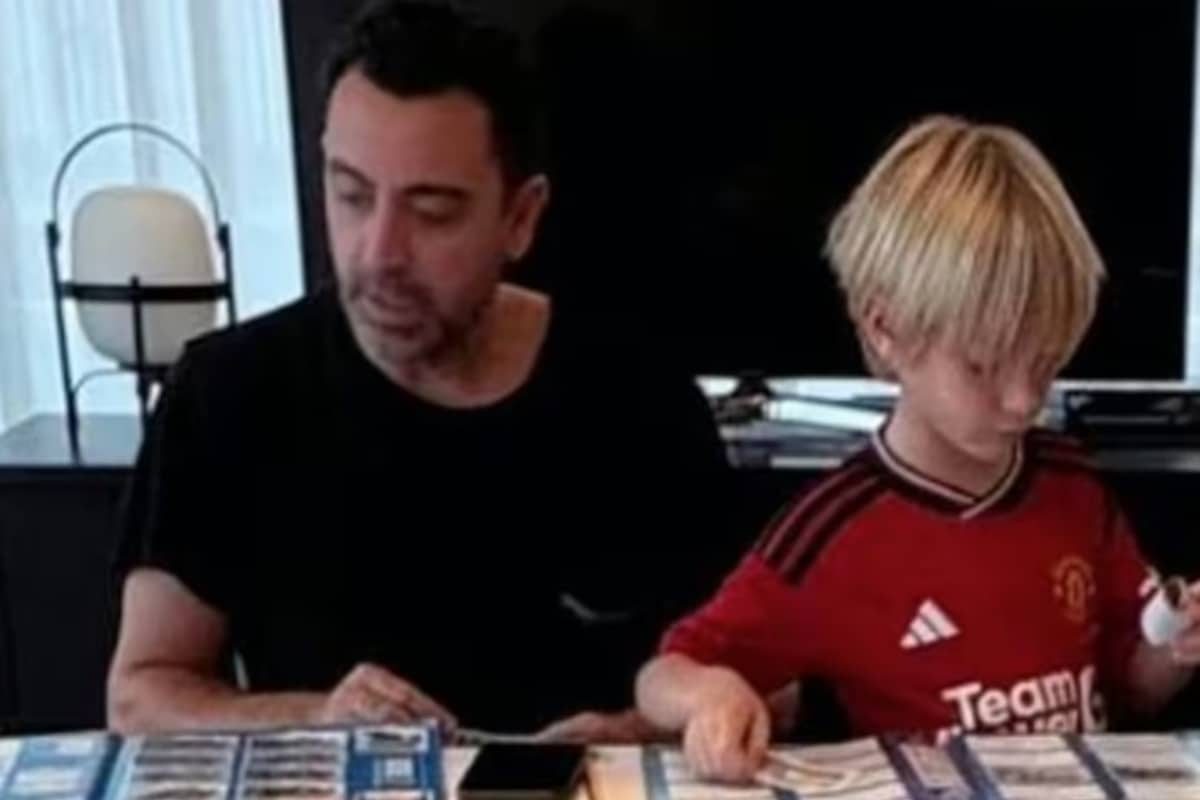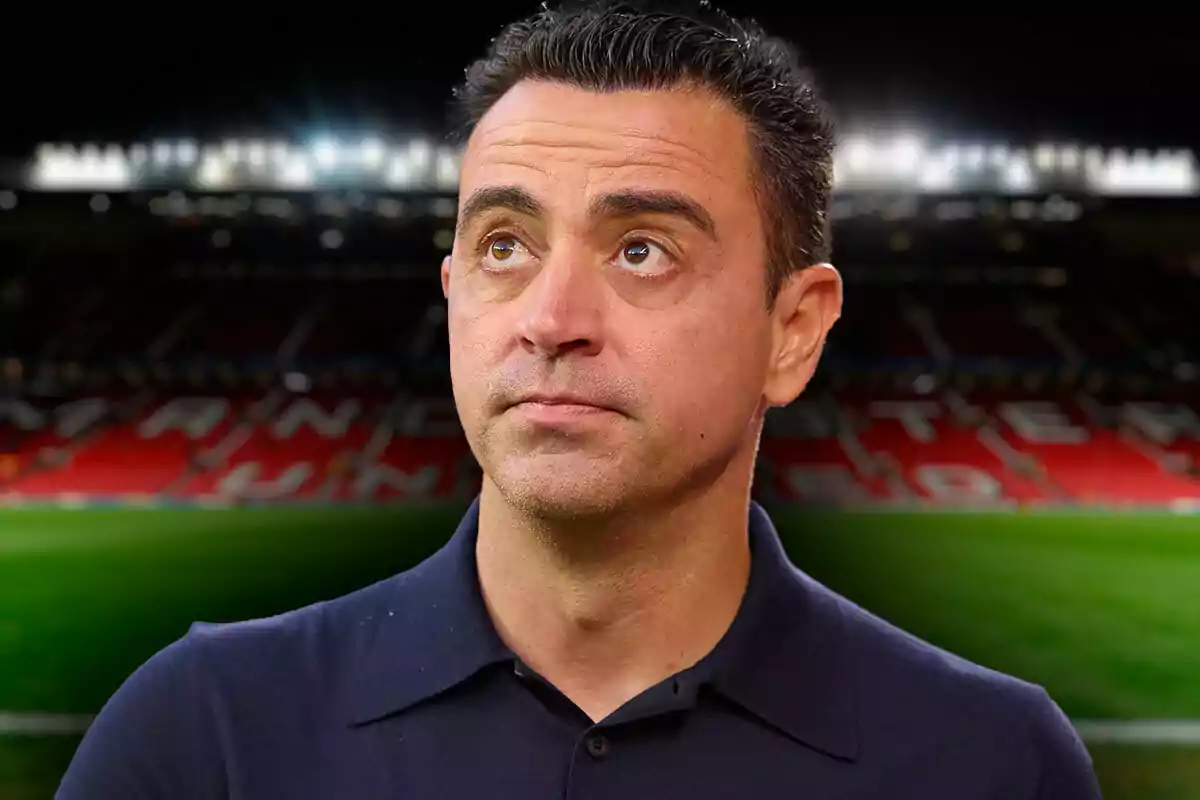Xavi Manchester United: The prospect of the Barcelona legend taking the reins at Old Trafford has ignited fervent debate. Could his possession-based philosophy, honed under Pep Guardiola, translate to the Premier League’s demanding pace and physicality? This analysis delves into Xavi’s tactical approach, potential transfer targets, and the overall impact he could have on Manchester United’s playing style and results, considering both the opportunities and challenges presented by such a significant managerial appointment.
From assessing the suitability of his tactical philosophy for the Premier League to outlining potential squad overhauls and predicting the resulting on-field improvements, we explore the multifaceted implications of a Xavi-led Manchester United. We examine potential media reactions and fan sentiment, considering the unique challenges of adapting to the English game and managing expectations at one of the world’s most scrutinized clubs.
Xavi’s Potential at Manchester United: Xavi Manchester United
The potential appointment of Xavi Hernandez as Manchester United manager has sparked significant debate amongst fans and pundits alike. His renowned possession-based style, honed at Barcelona, presents a fascinating contrast to the more direct approaches often seen in the Premier League. This analysis explores the various facets of a potential Xavi era at Old Trafford, examining his managerial style, potential transfer targets, predicted impact on the team’s performance, public perception, and illustrative scenarios.
Xavi’s Managerial Style and Suitability for Manchester United
Xavi’s tactical philosophy centers around intricate passing networks, high possession percentages, and controlled build-up play. This approach, while successful in La Liga’s often more tactical environment, requires a high level of technical proficiency and tactical discipline from players. Compared to managers like Pep Guardiola (who shares a similar philosophy) and Jürgen Klopp (whose gegenpressing style is a stark contrast), Xavi’s approach emphasizes patient build-up, aiming for penetration through precise passing rather than high-tempo pressing.
His strengths lie in developing young talent and fostering a team identity based on possession and control. However, weaknesses could emerge against physically imposing teams or those employing effective counter-pressing strategies. The current Manchester United squad possesses the technical ability to execute Xavi’s system in parts, but consistency and tactical discipline will be key. Players like Bruno Fernandes could thrive in a more possession-oriented system, while others may require adaptation.
A potential starting XI under Xavi might feature a 4-3-3 formation: De Gea; Wan-Bissaka, Varane, Martinez, Shaw; Casemiro, Eriksen, Mount; Sancho, Rashford, Antony. This setup emphasizes possession in midfield, providing creative outlets for the wingers and a clinical finisher up front.
Xavi’s Transfer Targets and Squad Building at Manchester United
Xavi’s transfer targets would likely focus on players who excel in possession-based football, with a blend of technical ability and tactical awareness. He might prioritize a deep-lying playmaker to dictate tempo, a creative midfielder to unlock defenses, and versatile full-backs comfortable in both attacking and defensive phases. Potential sales might involve players who don’t fit the possession-based style, or those whose performances haven’t met expectations.
| Player Name | Position | Current Club | Transfer Fee/Type |
|---|---|---|---|
| Pedri | Central Midfielder | Barcelona | High Transfer Fee |
| Jules Koundé | Center Back | Barcelona | High Transfer Fee |
| Gavi | Central Midfielder | Barcelona | High Transfer Fee |
| Alejandro Balde | Left Back | Barcelona | High Transfer Fee |
Integrating new signings would involve a gradual process, blending them with existing players to foster cohesion and tactical understanding. Successful squad rebuilds, like Guardiola’s at Manchester City, involve a clear vision, strategic recruitment, and patience. Unsuccessful examples, such as Mourinho’s second spell at Chelsea, highlight the pitfalls of neglecting team dynamics and failing to integrate new players effectively.
A Xavi-led rebuild at Manchester United would require a similar careful approach.
Xavi’s Potential Impact on Manchester United’s Playing Style and Results
Xavi’s possession-based style would significantly impact Manchester United’s attacking and defensive strategies. Attacking phases would involve patient build-up, intricate passing combinations, and a focus on creating high-percentage scoring opportunities. Defensively, the team would aim to control possession and limit the opposition’s counter-attacking chances through disciplined pressing and positional awareness.
| KPI | Current Status | Projected Status under Xavi | Justification |
|---|---|---|---|
| Possession Percentage | Average | High | Xavi’s philosophy emphasizes possession-based football. |
| Passing Accuracy | Average | High | Xavi prioritizes short, precise passing. |
| Goals Scored | Average | High | Improved build-up play should lead to more high-quality chances. |
| Goals Conceded | Average | Low | Controlled possession reduces the opponent’s attacking opportunities. |
Public Perception and Media Reaction to a Potential Xavi Appointment
Media reactions to potential Manchester United managers have been varied, with some favoring experienced Premier League managers, while others advocate for younger, more innovative coaches. The appointment of Xavi would likely be met with a mixture of excitement and skepticism. Fans would be intrigued by his tactical philosophy but might have concerns about his lack of Premier League experience.
Rival clubs would view his appointment as a significant challenge. A successful media strategy for Manchester United would involve highlighting Xavi’s achievements, addressing potential concerns, and emphasizing his long-term vision for the club.
Enhance your insight with the methods and methods of liverpool vs manchester united live.
Illustrative Scenarios: Xavi at Manchester United, Xavi manchester united

In a hypothetical match against Liverpool, Manchester United (under Xavi) might employ a controlled possession-based approach, aiming to dictate the tempo and limit Liverpool’s counter-attacking threat. Key moments might involve intricate passing sequences leading to scoring opportunities, and defensive solidity preventing Liverpool from capitalizing on quick transitions. Player performances would depend on their adaptation to Xavi’s system, with some thriving in their new roles and others requiring further integration.
The visual representation of the Manchester United formation would be a 4-3-3, with the emphasis on midfield control and fluid movement in the attacking third. The full-backs would provide width, the midfielders would control possession and dictate tempo, and the forwards would exploit spaces created by the intricate passing play. The interplay between the midfielders and the forwards would be crucial, with quick, one-two passes creating opportunities for scoring chances.
The defensive line would maintain a compact shape, preventing through balls and forcing Liverpool to build attacks from the flanks.
The potential appointment of Xavi as Manchester United manager presents a compelling narrative of tactical evolution and squad transformation. While his possession-based philosophy presents a fascinating contrast to the club’s recent history, the success of this ambitious undertaking hinges on several key factors, including effective player recruitment, seamless integration of new signings, and a well-executed media strategy to manage public perception.
Ultimately, the Xavi era at Manchester United, if it materializes, promises a captivating chapter in the club’s rich history, fraught with both potential glory and significant challenges.


